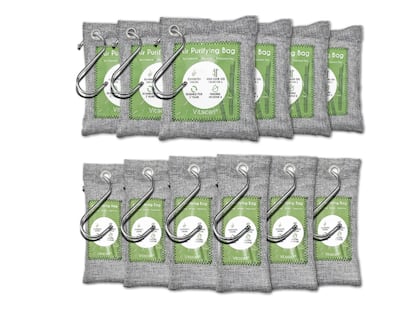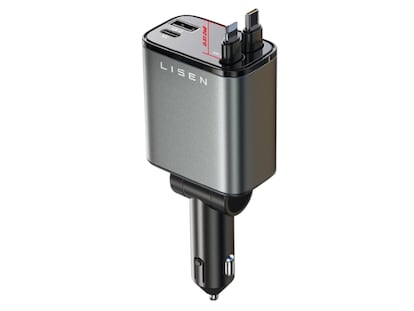Cable en el que se habla de que solo se controlan el 10% de los contenedores
Estados Unidos se queja de las dificultades para implantar el programa Megaports
| ID: | 109864 |
| Date: | 2007-05-25 16:33:00 |
| Origin: | 07MADRID1030 |
| Source: | Embassy Madrid |
| Classification: | UNCLASSIFIED |
| Dunno: | |
| Destination: | VZCZCXYZ0001 RR RUEHWEB DE RUEHMD #1030 1451633 ZNR UUUUU ZZH R 251633Z MAY 07 FM AMEMBASSY MADRID TO RUEHC/SECSTATE WASHDC 2643 INFO RUEAHLC/HOMELAND SECURITY CENTER WASHINGTON DC RHMCSUU/DEPT OF ENERGY WASHINGTON DC |
UNCLAS MADRID 001030 SIPDIS SENSITVE, SIPDIS E.O. 12958: N/A TAGS: ECON, EWWT, ENRG, PARM, PREL, SP SUBJECT: MEGAPORTS INITIATIVE: WORKING OUT THE KINKS IN ALGECIRAS REF: 06 MADRID 01705 1. (SBU) Summary. The Megaports program to scan for nuclear or radiological materials in shipping containers was implemented March 2006 in Algeciras with respect to scanning import and export traffic. During meetings May 18, USG and host nation officials agreed on a plan to implement the transshipment (ship to ship transfers) element of the Megaports program. Assuming this plan is successfully implemented, it should serve as a model for higher-risk ports in preventing illegal nuclear and radiological materials hidden in transshipment containers from ever reaching US ports. End Summary. 2. (SBU) When the Megaports initiative in Algeciras went live in March, 2006 (see reftel), USG and host nation officials intended that both the export/import traffic as well as the transshipment traffic would be scanned. One year later, only the export/import cargo, representing just 10 percent of total port traffic, is being checked under the Algeciras Megaports program. During discussions the week of May 15, Maersk company - serving as both the Algeciras terminal operator as well as the major port shipping company - indicated to Department of Energy (DOE) and Mission officials that the implementation delay was due to factors beyond their control. Maersk cited insufficient customs staffing as well as pushback from local laborers, caused primarily by a perception that transshipment cargo scanning would result in lower productivity and hence lower pay. 3. (SBU) Though Algeciras itself is not commonly believed to be a high risk port for shipments, the port's willingness in 2004 to partner with the Megaports program as well as its unusually heavy flow of transshipment traffic (estimated at 90%) made it an attractive port for testing out ways to scan transshipment containers. This type of scanning is logistically challenging given the sometimes quick timeframe in which cargo must be offloaded from one ship onto its connecting ship. Megaports is currently being implemented in a select few ports world-wide though primarily for export/import traffic. 4. (SBU) When Embassy and DOE officials met with Spanish customs enforcement on May 18, the Spanish customs team led by Ignacio Gonzalez Garcia resolved to look into increasing staffing to support the program. Gonzalez Garcia also agreed to work with Maersk terminal operator to resolve implementation issues brought on by labor pressures. The local labor pushback, Gonzalez Garcia argued, could be addressed by beginning implementation on a limited scope - scanning a lower number of containers than originally planned. Once local labor realized that productivity would not be affected, then the scanning program could be expanded to its full scope. Maersk, having originally suggested this idea in previous meetings, would be amenable to implementing this limited plan. 5. (SBU) Comment: Expansion of Megaports to Barcelona and Valencia is on the agenda for the future. DOE's willingness to move quickly on this expansion will depend in part upon the successful implementation of the Algeciras transshipment plan. Successful implementation of this initiative is a priority for the Embassy, particularly given the benefits and "lessons learned" it may impart when Megaports expands to other ports world-wide that have shipments going to the US. AGUIRRE |
Traducci¨®n autom¨¢tica. Puede que el texto traducido no sea fiel al original
Tu suscripci¨®n se est¨¢ usando en otro dispositivo
?Quieres a?adir otro usuario a tu suscripci¨®n?
Si contin¨²as leyendo en este dispositivo, no se podr¨¢ leer en el otro.
FlechaTu suscripci¨®n se est¨¢ usando en otro dispositivo y solo puedes acceder a EL PA?S desde un dispositivo a la vez.
Si quieres compartir tu cuenta, cambia tu suscripci¨®n a la modalidad Premium, as¨ª podr¨¢s a?adir otro usuario. Cada uno acceder¨¢ con su propia cuenta de email, lo que os permitir¨¢ personalizar vuestra experiencia en EL PA?S.
?Tienes una suscripci¨®n de empresa? Accede aqu¨ª para contratar m¨¢s cuentas.
En el caso de no saber qui¨¦n est¨¢ usando tu cuenta, te recomendamos cambiar tu contrase?a aqu¨ª.
Si decides continuar compartiendo tu cuenta, este mensaje se mostrar¨¢ en tu dispositivo y en el de la otra persona que est¨¢ usando tu cuenta de forma indefinida, afectando a tu experiencia de lectura. Puedes consultar aqu¨ª los t¨¦rminos y condiciones de la suscripci¨®n digital.




























































